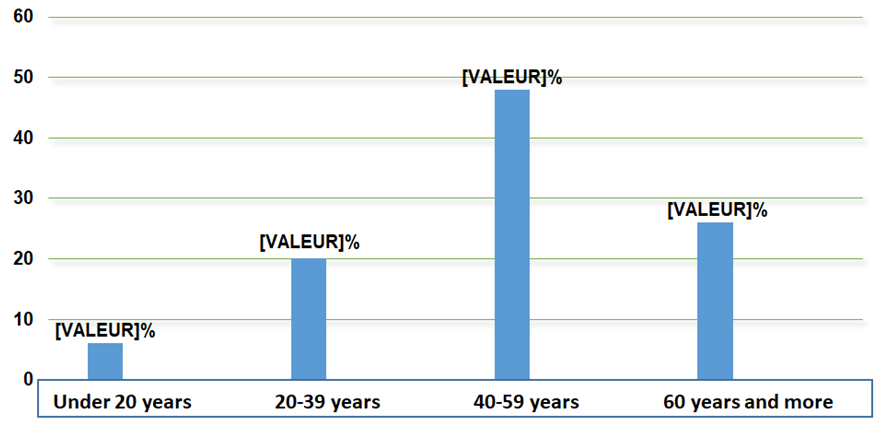Evaluation of Vitamin D Levels in Kidney Failure Hemodialysis Patients
Article Sidebar

-
Chronic kidney disease,, Hemodialysis,, Vitamin D
Abstract
Introduction : Vitamin D is a fat-soluble prohormone whose metabolism is disrupted by chronic kidney disease (CKD). Indeed, it is in stage 3 of chronic kidney disease that an inadequate conversion of 25(OH)D to 1.25(OH)2D appears. The objective of the study was to evaluate the concentration of vitamin D and its correlation with parameters such as calcium and parathyroid hormone in a population with CKD and hemodialysis.
Methodology : This is a Study involving 35 hemodialysis patients. In these patients, epidemiological parameters were taken and blood samples were taken. Parameters such as vitamin D, calcium and parathyroid hormone were measured on each sample.
Results and Discussion : The majority of patients, 72%, had suboptimal vitamin D concentration, respectively 46% at the insufficiency stage (20-29 ng/ml) and 26% at the deficiency stage
(0-19 ng/ml) of which 3% were severe deficient ; with an average age of 48.97±14.95 years and a predominance of men (57%). A positive and negative correlation between vitamin D and serum calcium and vitamin D and parathyroid hormone, respectively; was found.
And also factors, such as age and gender have been identified as associated with decreased vitamin D concentration.
Full text article
Authors
Article Details
Similar Articles
- Ihsan Edan Alsaimary, Falih Hmood Mezban, The Estimation of serum inflammatory cytokines( IL-4, IL 10 and IL 17) and total IgE concentrations in patients with bronchial asthma by ELISA technique. , Jour Med Resh and Health Sci: Vol. 4 No. 1 (2021)
You may also start an advanced similarity search for this article.